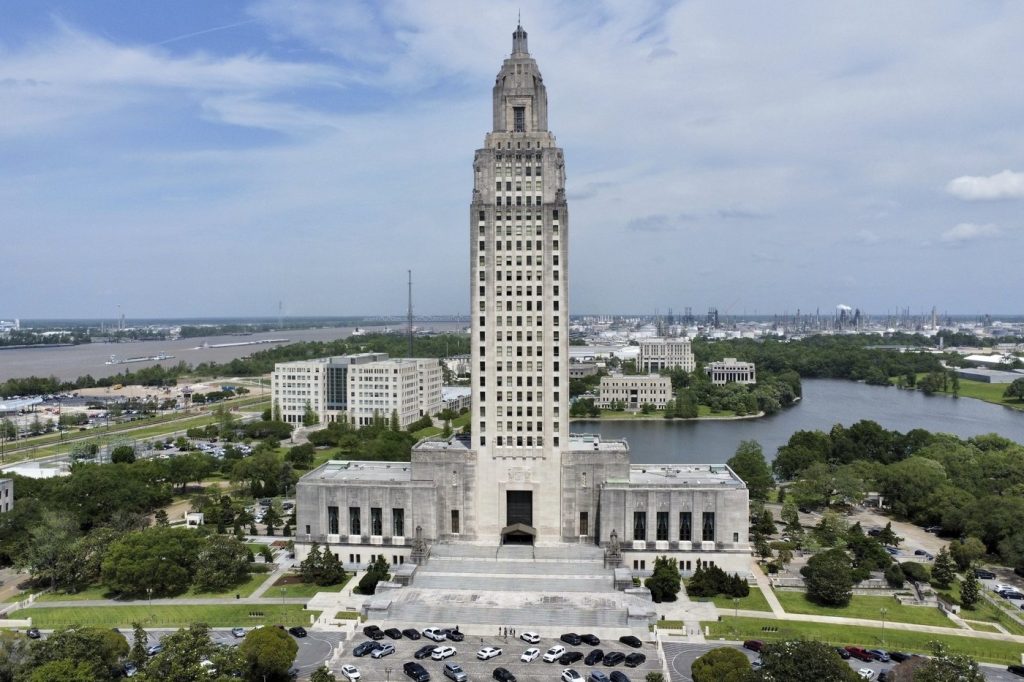NEW ORLEANS (AP) — Louisianians are preparing to cast their votes on several proposed constitutional amendments this Saturday, which address significant issues regarding crime, the court system, and state finances. These amendments emerged from a special legislative session last fall, during which Governor Jeff Landry's tax reform overhaul was a primary focus, resulting in four proposed changes being approved by lawmakers.
One of the most contentious issues on the ballot concerns the treatment of minors within the criminal justice system. Last year, the Louisiana Legislature, dominated by the GOP, voted to classify 17-year-olds as adults for legal purposes as part of a broader tough-on-crime approach advocated by Landry. Currently, prosecutors are permitted to charge minors under the age of 17 as adults for serious offenses, such as rape, murder, and armed robbery. A vote will determine whether to remove the existing list of crimes from the constitution, thus allowing lawmakers to expand the types of offenses for which juveniles can be charged as adults without requiring another vote. Proponents argue that this change would grant lawmakers greater flexibility to address the demands of prosecutors, while critics contend that it represents an excessive, punitive response that fails to tackle the underlying causes of youth crime.
Another significant amendment seeks to liquidate several education trust funds to alleviate approximately $2 billion in public school system debt. The resulting savings from interest payments on these funds would be allocated to increase teacher salaries by $2,000 annually. This extensive proposal, which spans over 100 pages but is summarized on the ballot in less than 100 words, also aims to impose stricter regulations on state spending for ongoing programs and combine two state savings accounts, potentially decreasing long-term rainy day funds. While this amendment has garnered bipartisan support among lawmakers who argue it promotes government efficiency and better fiscal planning, critics assert that it lacks transparency and poses risks to savings and education funds.
Additionally, the proposed amendments introduce changes to the court system. Lawmakers are seeking to gain broader authority to establish specialty courts beyond the current limitations that bind them to specific parishes and judicial districts. The existing system includes various specialty courts that manage cases relating to veterans' affairs and drug abuse. The proposed changes would permit the creation of statewide or regional courts, which supporters believe could facilitate handling complex cases like business litigations. However, detractors warn that this could empower conservative lawmakers to undermine the judiciary in more liberal areas, such as New Orleans.
Yet another amendment aims to provide the state with increased leeway in appointing judges to fill vacancies on its Supreme Court. The current constitution mandates these openings be filled within 12 months, which can result in costly special elections. The amendment would allow these elections to occur during the next scheduled regular election, thereby streamlining the process. This proposed change arose as a consequence of a legislative decision to terminate “jungle” primaries for the state’s Supreme Court, which previously allowed a wider array of candidates to compete in primary elections.
As voters head to the polls, these amendments will significantly shape the landscape of Louisiana’s judicial and educational systems, alongside considerations for crime and public safety. The results of this vote will be pivotal in determining how these issues are managed moving forward.










